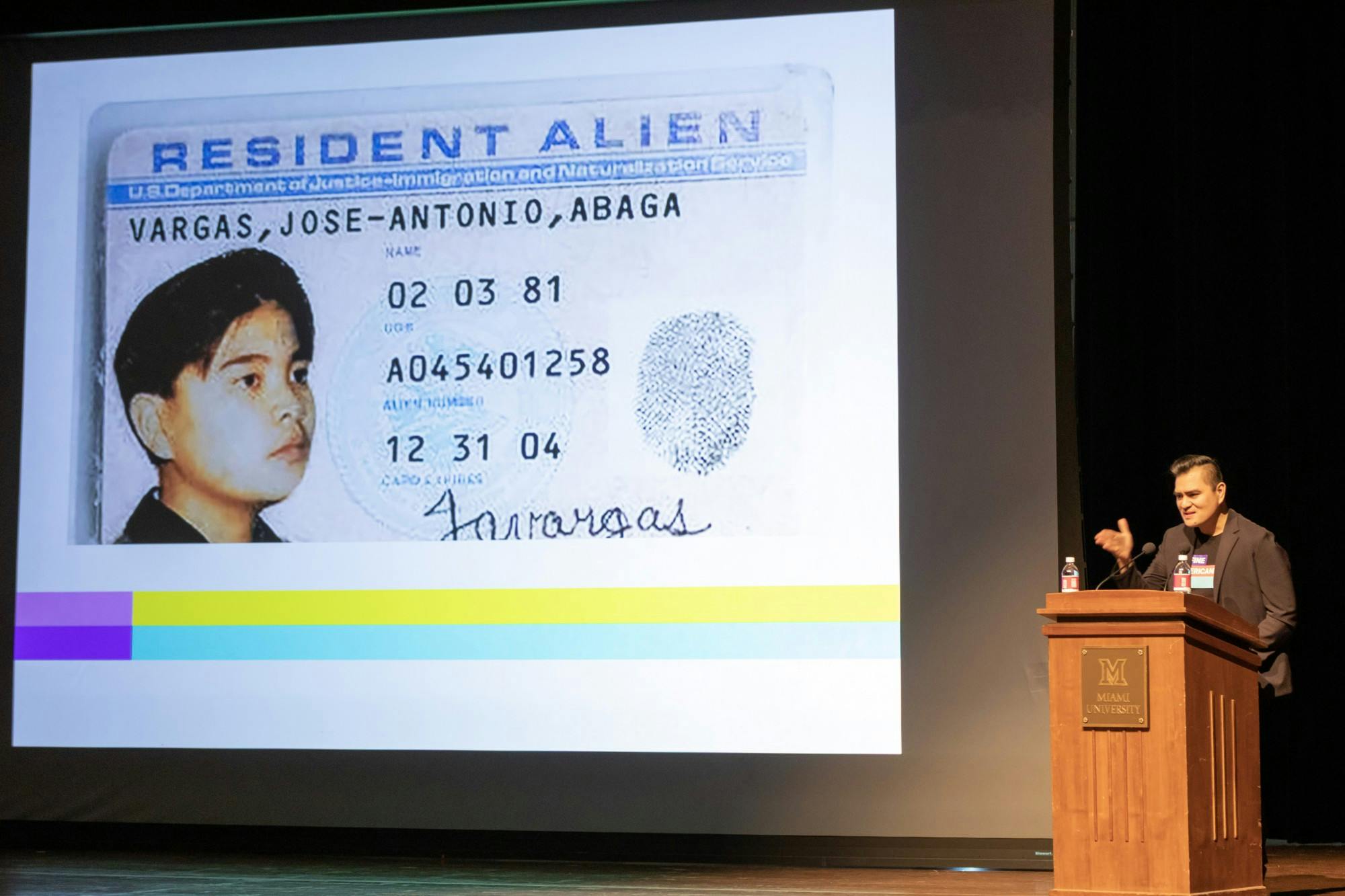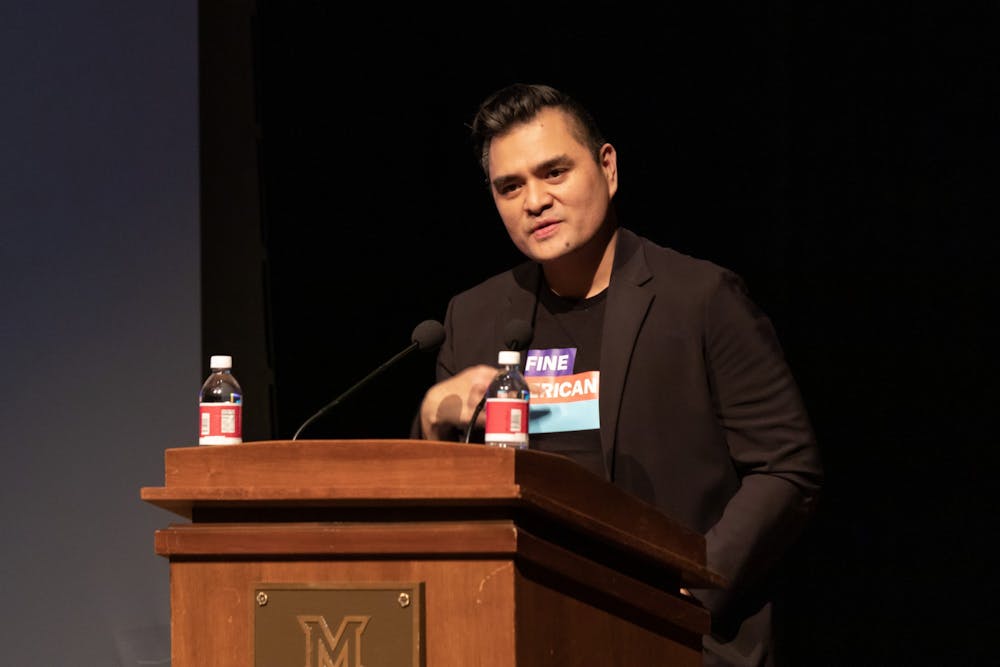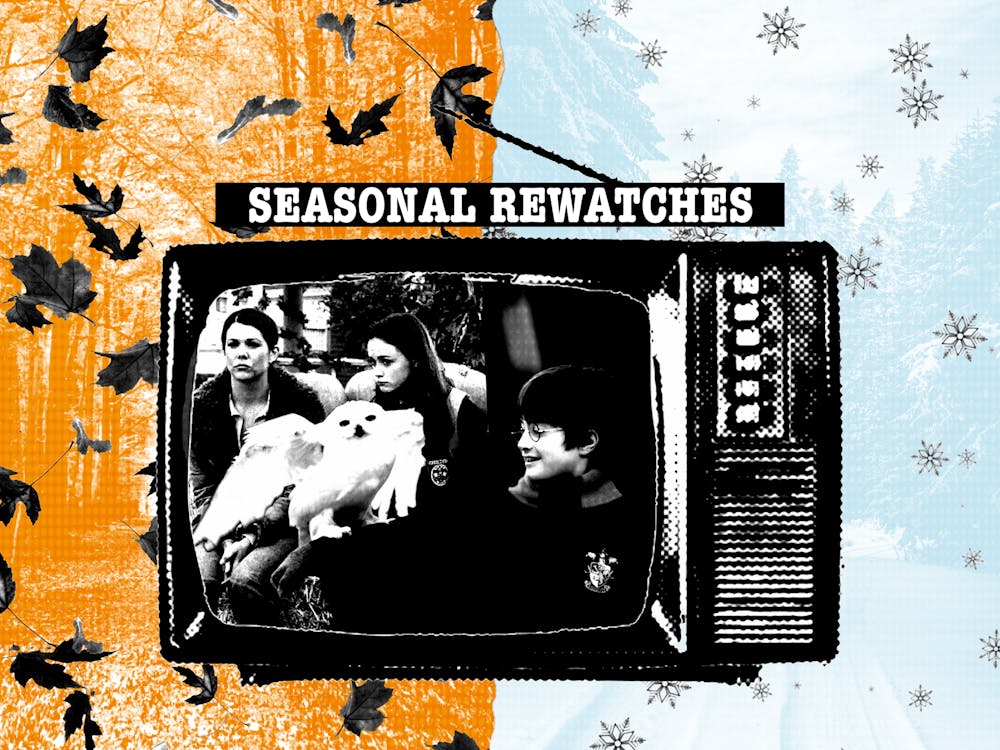Journalist, Emmy-nominated filmmaker and Tony-nominated producer Jose Antonio Vargas visited Miami University on Monday, March 6, to talk about his life as an undocumented immigrant and how to define “American” one narrative at a time.
45 million immigrants live in the U.S., with half a million in Ohio, Vargas said. Immigrants from India, China, the Philippines, Mexico and Canada make up 5% of the state’s population, with 90,000 undocumented immigrants.
Once Vargas got to America he was given a green card.
“I was really confused by this because it said ‘resident alien’ and I thought it was a video game,” Vargas said.
More so than the green card, he was confused about race. He didn’t realize he was Asian until he got to America.
He found out he was an undocumented immigrant from his grandfather. Vargas said the people at the DMV told him his green card was fake.
“You’re not supposed to be here,” his grandfather said. “What are you doing showing that to people?”
In high school, Vargas was confused about his status and had no way to connect with others like him. However, his salvation came in three forms: his high school principal and superintendent, his teacher Mrs. Dewar and Toni Morrison.
Vargas’ high school principal and superintendent were the first people he told about being an undocumented immigrant. They helped him find a scholarship to go to college that didn’t require legal immigration papers. His mentors when he was 16 asked why he didn’t apply to colleges because he was so engaged in school.
“I didn’t want to be home because then I would have to deal with being illegal at home,” Vargas said.
Mrs. Dewar was the person he asked all of his “annoying questions” to, and she recommended that he become a journalist. Vargas said he had no idea what that even was at the time.
“If my name can’t be on a green card that’s legal, it can at least be on a piece of paper,” Vargas said.
Enjoy what you're reading?
Signup for our newsletter

His third salvation was the author Toni Morrison. Her book, “The Bluest Eye,” changed his life because it got him thinking about the questions she was asking.
Vargas said that after reading an interview from Morrison about authority and her protagonist’s surrender to it, he decided he could not become a victim. At some point he convinced himself that an illegal alien and a victim were one and the same. Fourteen years after discovering he was here illegally, he came out as an undocumented immigrant.
Yet, nothing happened.
He even contacted the editor at Time Magazine and asked to write a story about why he hadn’t been deported. When he called the New York City Immigration and Customs Enforcement (ICE) office, they offered no comment.
Vargas then wrote about 33 other undocumented immigrants from all over the world who came to America and their historic photo was the cover of Time Magazine.
“Mine is just one story. We need more stories to change the anti-immigrant narrative,” Vargas said.
Despite writing about immigration issues for years, Vargas has been unable to get legal status. When politicians from both sides ask him about it, he responds with a question of his own. If a very privileged person like Vargas can’t get his papers, then how is someone without his resources going to?
He then continued to talk about immigrants portrayed on television and how they are commonly shown as criminals and underrepresented in general.
He took the information he’s gathered on this topic and went to the CNN producers and asked if they wanted to make a documentary.
They succeeded; it's called “Documented.”
He has also written the books, “Dear America: Notes of an Undocumented Citizen” and “White Is Not a Country.” The latter will be published next year.
Drew Barringer, a junior Sports Leadership and Management major, said he feels bad that the amount of immigrants in America from Asia surprised him but it's kind of just the world we live in right now.
“[This is] a really timely issue that I want to know more about, like immigration in America, because I've never had to go through anything like that,” Barringer said.
Josh Myers, a sophomore marketing major, said something that will stick with him was when Vargas said, “This country is addicted to cheap labor.”
“[It’s] such a flooring and very real sense to kind of describe some of the inhuman activities that are happening in America,” Myers said.
When asked how she thinks Vargas did in his speech, Ava Fuschino, a junior media and communications major, said she thought he did a very good job at bringing light to topics that she never would have thought about or considered.
“I think he talked about things in a mature manner,” Fuschino said. “He was very interesting and engaging at the same time.”




